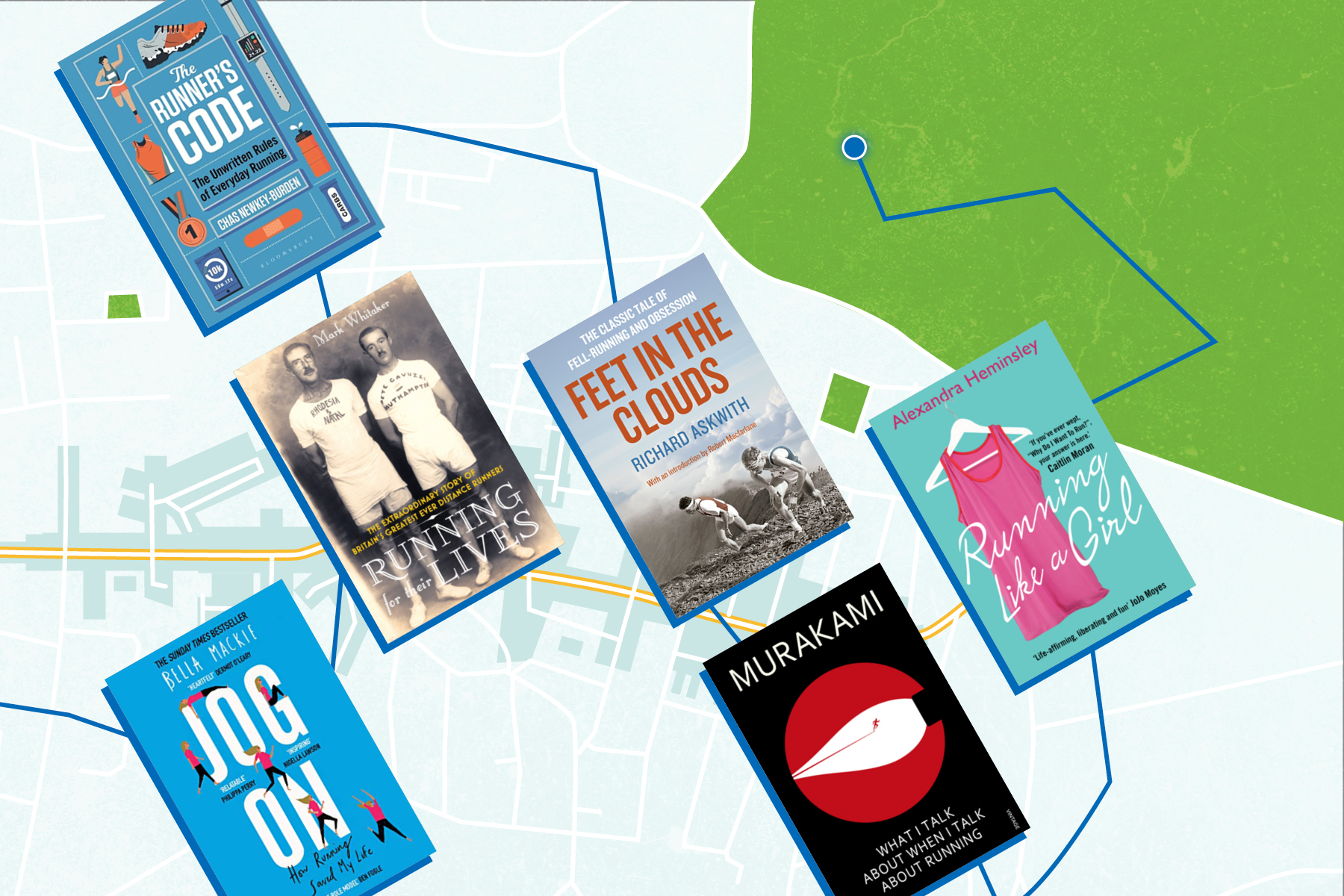
- Home |
- Search Results |
- Books to read to inspire you to start running
Have you ever considered the dark, measly little dawns of early January and thought: "Well, this is the time to start running!"?
It's the kind of good intention that turns up at the end of a year, somewhere between the rounds of mince pies, or in the midst of a bad breakup. But there are also more unlikely sources of running inspiration, namely books.
However big your own mountain – be it a 10km or just making it to the end of the street – there’s everything to be gained from lacing up and simply giving it a go. And reading books by those who did it first may be the perfect first step. Here are some of our favourites.
The essential practical guides
The Runner's Code: The Unwritten Rules of Everyday Running by Chas Newkey-Burden (2022)
Considered one of the best sports books of 2022, The Runner's Code tackles all of those questions about running that crop up after you've tied up your laces. Writer and running obsessive Chas Newkey-Burden blends warm humour with good advice to help you achieve your best running performance, tackling issues such as running in extreme weather and what, exactly, is the best way to overtake pedestrians on a busy pavement.
Run Your Best Marathon: Your trusted guide to training and racing better by Sam Murphy (2022)
Sam Murphy is a running coach columnist at Runner's World magazine and here she collects all of her wisdom in an indispensable guide to simply running better. While this book is definitely aimed at long-distance runners, there are tips here that those of all experiences and interests will find handy, such as on training, eating, recovery and the racing itself.
The most inspiring running memoirs
Running Like A Girl by Alexandra Heminsley (2013)
Alexandra Heminsley explores the barriers that stop us actually getting out and going for a run in her brilliant memoir Running Like A Girl. Bored by endless yoga sessions (who isn’t?) she laces on her running shoes. Six years later, she’s mastered five marathons on two continents. What really hits home, though, is Heminsley’s account of all those failed runs that we all endure. You know, the ones where you get to the bottom of the street and turn back. Or where you tell yourself just the right pre-run snack, or the right pair of shorts, or even the right playlist will make all the difference when you try again. Tomorrow.
Running For Their Lives by Mark Whitaker (2012)
A different but equally inspiring take on the possibilities of running is Mark Whitaker’s Running For Their Lives, the story of Peter Gavuzzi and Arthur Newton who competed a transcontinental road race across America in 1928. Covering 40 miles for 80 consecutive days without the luxuries of modern sportswear or nutrition. Largely forgotten today, the pair were once the most famous long-distance athletes in the world.
Jog On by Bella Mackie (2018)
Of course, many of us run out of necessity, not to hit incredible goals. Many of us need to run to burn through the excesses of anxiety we suffer from, to reclaim headspace from hectic and overwhelming lives. In Jog On, Bella Mackie recounts how forcing herself off the sofa and into a pair of running shoes revolutionised her life, and her mental health. Incorporating commentary from psychologists, sportspeople and doctors, this book is testament to the restorative powers of running. Still unconvinced? Get out for just five minutes, and I guarantee you’ll feel better. What’s more, Mackie ticked off her fitness goals one by one without having to sacrifice booze, cigarettes or ice cream; the perfect rebuke to the fitness snob.
Feet in the Clouds: The Classic Tale of Fell-Running and Obsession by Richard Askwith (2013)
There’s a simple, solitary pleasure of running for the pure joy of being outdoors. It’s a feeling Richard Askwith captures in Feet in the Clouds: The Classic Tale of Fell-Running and Obsession which explores the obsessive dedication of the women and men who run fells for fun, including (now 86 year old) Joss Naylor who ran 60 Lake District peaks for his 60th birthday and once covered the equivalent of four Everests in a single run.
Running insight from amazing authors
“The repetition itself becomes the important thing; it’s a form of mesmerism,” Murakami told the Paris Review in 2004, an idea he would later expand upon in delicious detail in his seminal memoir What I Talk About When I Talk About Running. “To hold to such repetition for so long — six months to a year — requires a good amount of mental and physical strength. In that sense, writing a long novel is like survival training. Physical strength is as necessary as artistic sensitivity.” For Murakami, running each morning is a way of ingraining the discipline needed to write novels.
Running can also be a way of channelling your frustrations. In Alan Sillitoe’s brilliant short story The Loneliness of the Long Distance Runner, a working class teenager involved in petty crime takes to running as a way of emotional and physical escape. It’s an idea Adriana Rodrigues updates and expands upon in Protect These Streets, in which a young woman is motivated to run by her economic and family situation before realising that running itself can provide the stepping stones to her future. In both cases, the act (art?) of running takes the protagonist further than they ever would have realised possible.